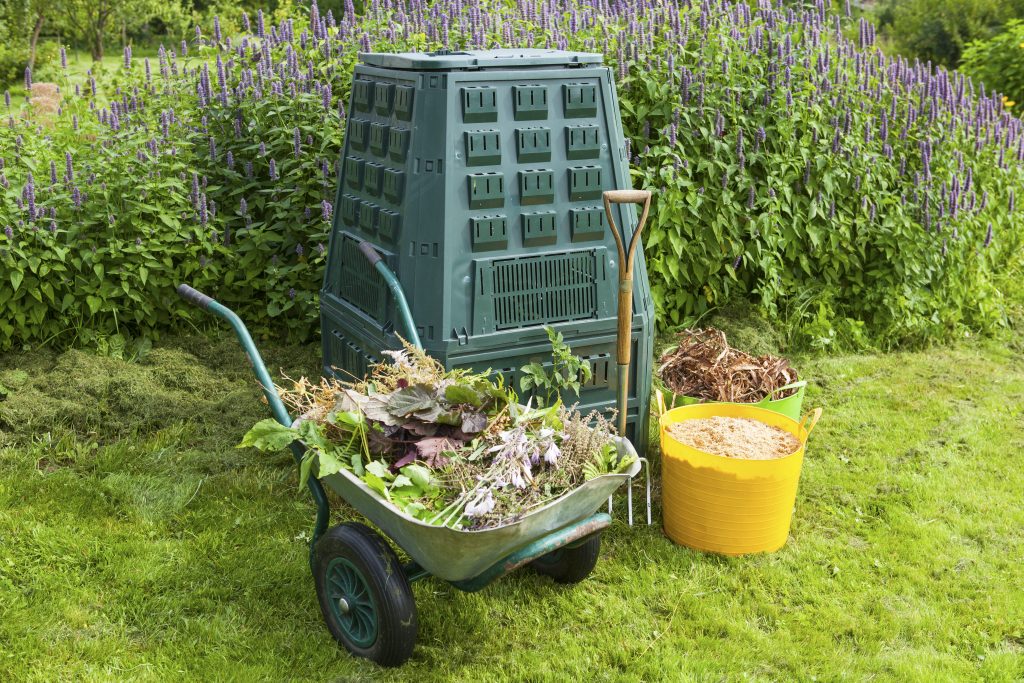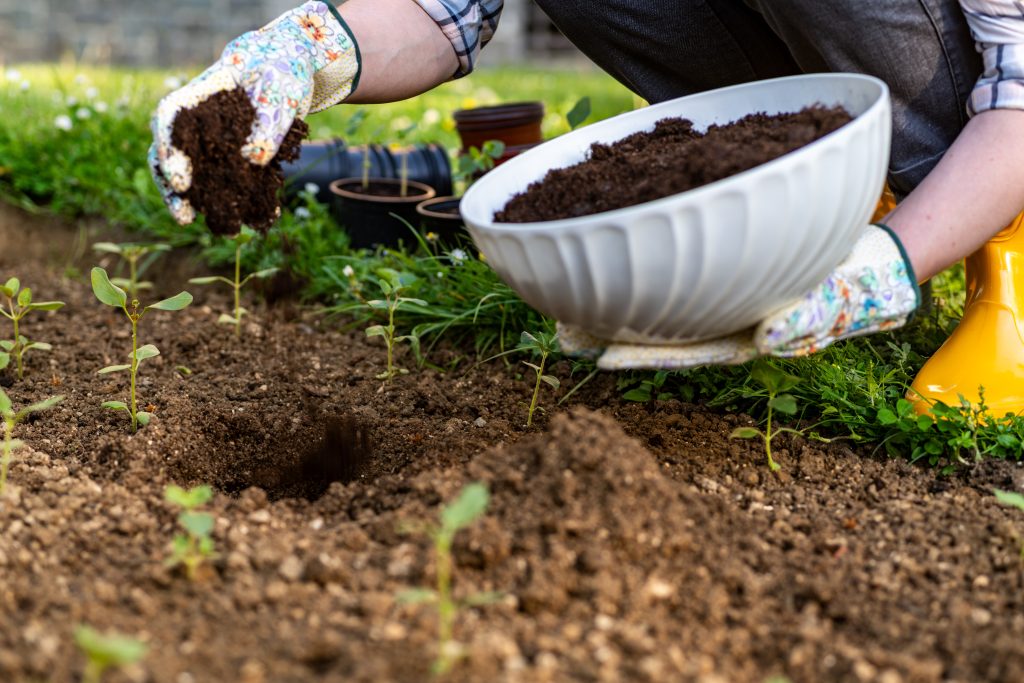So you are interested in composting your kitchen scraps but no idea which composting method to do? This article will review the different options including Bokashi Bins, Compost Bins or Worm Farms?
Composting is a great way to use up those kitchen scraps to produce something amazing for your garden (or a friend’s/community garden). In addition, it is good for the planet to reduce the amount of food going to landfill.
There are actually many different ways to compost your kitchen scraps. There are options if you don’t have much space, only have an indoor space, are time poor or not physically able.
Before we get started, you might want to take a moment to consider the following questions in order to choose the right method for your situation:
- How much time do you have to devote to composting?
- How much space do you have? Indoor only? A large outdoor space?
- Do you have a garden to use your compost or would you need to find one near by?
- Is the compost bin for kitchen waste only or do you have a lot of garden waste to compost too?
- Are you physically able?
- Do you want to involve kids?
- Are you ok with some pests?
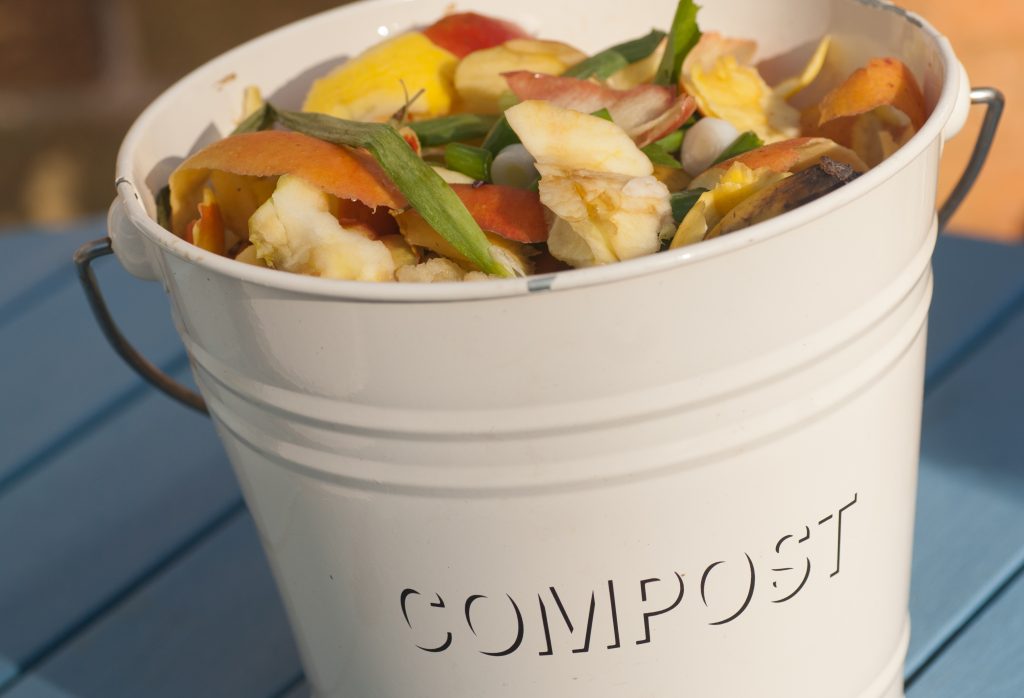
Below are 4 of the most common ways to compost along with some advantages and disadvantages.
Garden Composting
This method of composting is simply putting green matter (ie kitchen scraps) and brown matter (ie brown leaves) into your compost bin, turning it regularly and monitoring the moisture levels. You can find out more detailed information on starting a compost bin here.
There are two methods of garden composting -cold composting or hot composting.
Cold Composting
Cold usually means using a standard compost bin and that you leave the contents to slowly turn to compost. It can take 6-12 months at least for the organic matter to break so you can use the compost on your garden. The process will happen faster if you turn the pile regularly to increase airflow and cut your scraps into smaller pieces, larger chunks will extend the timeframe. Keep in mind, cold compost doesn’t kill weed seeds so be careful not to add any plants you don’t want to pop up in your garden.
Advantages
- Large volumes
- Sit and forget with cold composting
- All year round composting
Disadvantages
- Require larger space to put compost bin
- Doesn’t kill weeds
- Takes 6-12 months to make compost
- Can attract pests such as mice, rats, snakes
Hot Composting
Hot composting is the process whereby your compost pile generates heat which in turn speeds up the composting process and also kills any bacteria and weeds. In order to do this you will need to build a bigger pile, generally at least one cubic metre in size. You may find the temperature easily heats up to over 200° F but the perfect temperature is usually around 140 – 150°F. If the temperature rises above 160°F, you risk killing off the good biology. You can use a compost thermometer to keep track of the temperature.
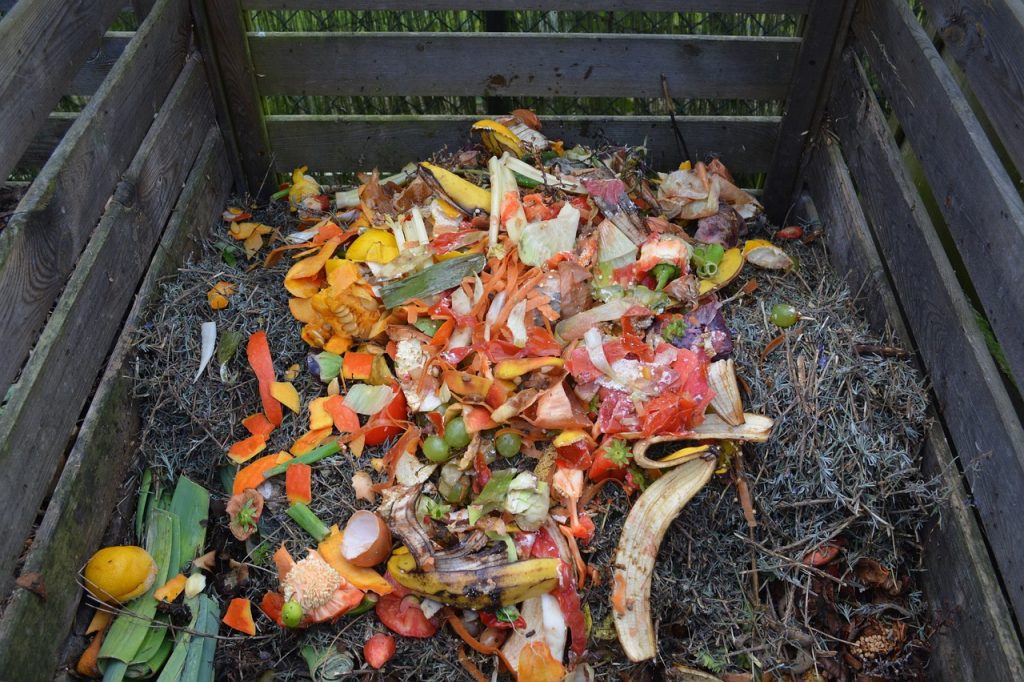
Advantages
- Large volumes
- Great for garden waste too
- Quick turn around
- Kills weeds
- Less likely to attract pests
Disadvantages
- Can be strenuous and time consuming to turn the compost
- Risk you overheat the pile and kill the good bacteria
- More complex
Worm Farms
Worm farms (or Worm Café) are a great set up for those who live in smaller spaces however anyone can benefit from having a worm farm. Most people purchase a worm farm (you can certainly make your own) and a packet of worm. Its then a matter of putting in some bedding for the worms, usually moist shredded paper and then adding the worms on top. Once your worms are comfy in their new home you can start feeding them your kitchen scraps. It’s a good idea to monitor the amount you are giving them to avoid the scraps going mouldy and smelly. Start small then build up the amount of food you are giving them.
Top up with shredded paper to ensure that there is a good ratio of carbon (shredded paper) and nitrogen (food scraps) and to prevent flies. The worms will eat through the food scraps and shredded paper and produce worm castings/vermi cast. This is the dark soil looking substance under the worms/food. This is full of nutrients and living organisms that are really beneficial for plants.
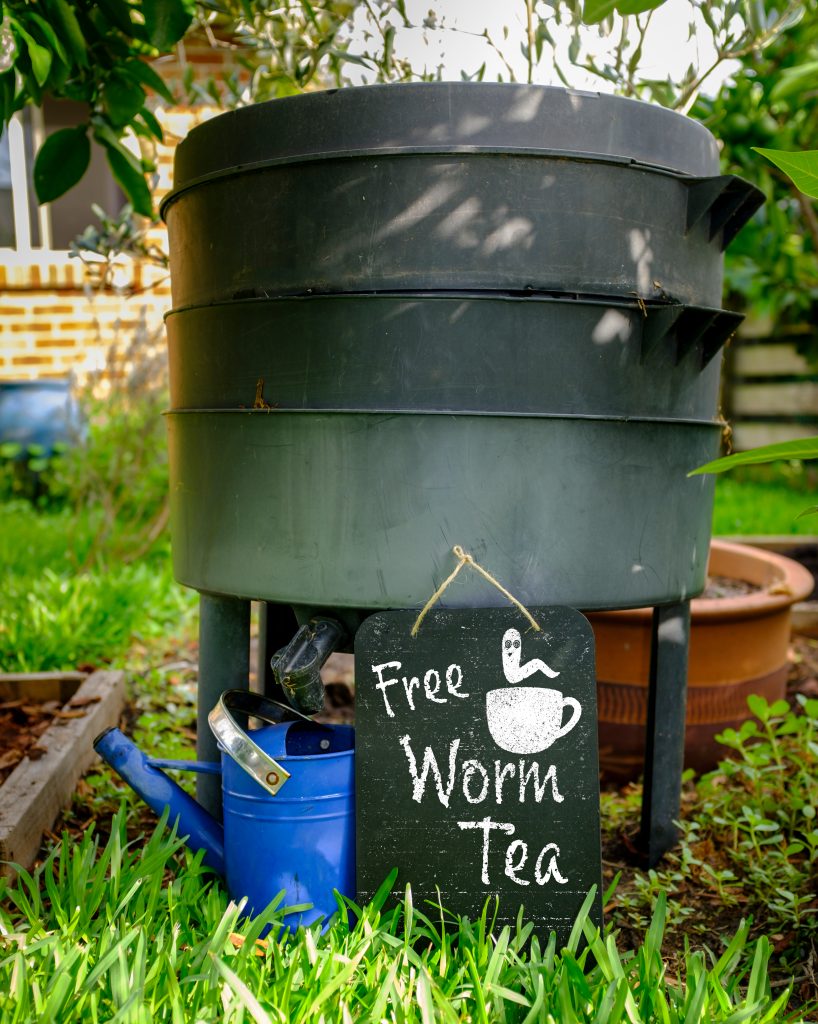
A great way to use worm castings in your garden is when you are planting seedlings. Simply mix in the worm castings to the soil around where you are planting your seedlings. Your plants will thank you for the extra nutrients and moisture it supplies.
Not only do the worms produce worm castings, you can also make worm juice/tea from your worm farm by seeping your worm castings in water for 8 hours. You can then water your fruits and vegetables with your worm tea. This is an excellent fertilzer for your garden. It provides lots of good microbes and helps your fruits and vegetables grow big and healthy.
You can find more information about Worm Farms here.
Advantages
- Great for small spaces
- No smell
- Great for kids
- Easy to look after
- Great fertilizer
- Can be done indoors
Disadvantages
- Can be tricky to remove the worm castings
- More costly to purchase
- Risk of worms dying in harsh conditions
Bokashi Bin Composting
Bokashi bins are another option for getting rid of your kitchen scraps – including meat and dairy (which you can’t put into garden compost bins or worm cafes). You can even leave it on your kitchen bench.
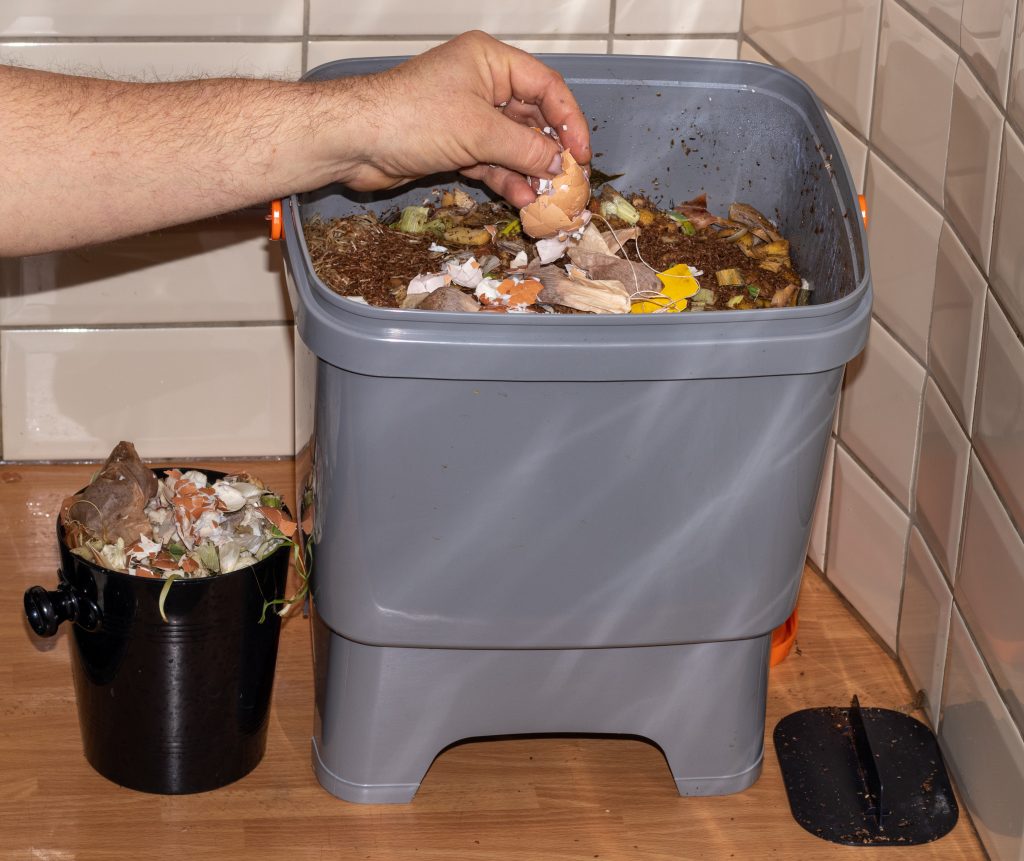
To get started you need a bokashi bin, you can buy one or try making your own. You need to make sure you have a tight lid on top of your bucket. The process for using a bokashi bin is adding your kitchen scraps and an accelerator. The accelerator helps start the fermentation process and keeps smells at bay. Once your bin is full you put the lid on tightly and let it sit for to ferment longer.
Once you are happy with the length of time your bokashi bin has been fermenting you can add it to your compost bin or even buy it in the ground away from young plans.
You can find more about Bokashi bin composting here.
Advantages
- Great for small spaces including indoors
- Fast process, around 4 weeks
- No smell or pests
- Can add dairy and meat
Disadvantages
- Ongoing cost to purchase the accelerator/bran
- Small size
Each of the 4 options listed above are great composting methods and very diverse for different situations. Regardless of which option you start with you can be assured that it will be an excellent method for getting rid of your kitchen scraps.
